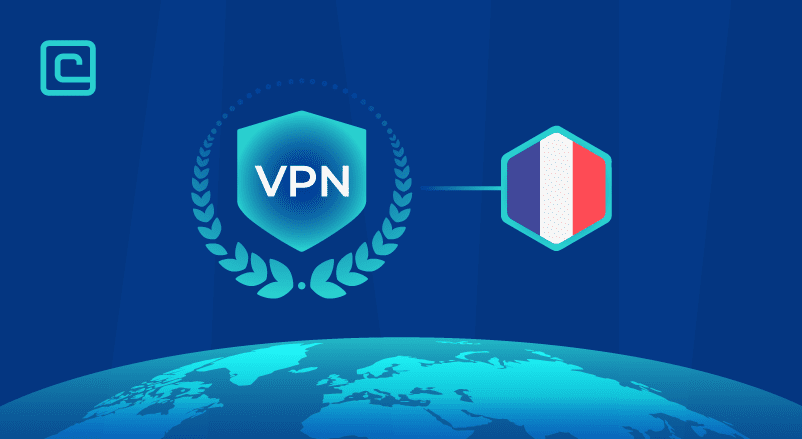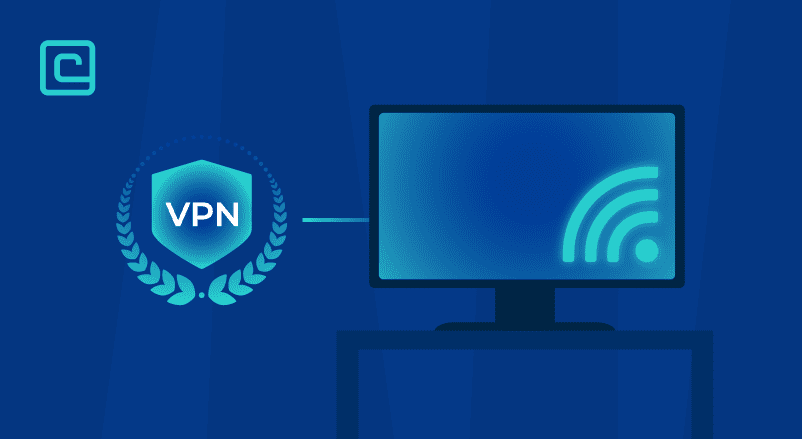What Is a VPN Concentrator? (Quick & In-Depth Guide)

This is a pretty complicated topic, so let’s start with a simple VPN concentrator definition. A VPN concentrator is a networking device that establishes and maintains tons of VPN connections at the same time. It does what a normal virtual private network does but on a much larger scale.
VPN concentrators are hardware devices that come with their dedicated software. Big corporations, military institutions, and other large organizations normally use them. This way, they can allow hundreds or thousands of employees to securely access the organization’s network.
What Does a VPN Concentrator Do?
A VPN concentrator allows people to securely access a network — here’s how it does that:
- It uses encryption to secure connections, making all traffic unreadable.
- It provides end-to-end encryption. So only the centralized network and VPN concentrator client can encrypt-decrypt data.
- It assigns IP addresses to users.
Those are the main things this device does. On top of that, it authenticates users when they access the network. Also, the VPN concentrator manages all VPN connections on the network and the security keys associated with the VPN network.
Test Your VPN Knowledge – Take A Quiz!
Why Use a VPN Concentrator?
Here are the main reasons some businesses and organizations use VPN network concentrators:
- Secure remote access — these devices allow users to remotely access a network without compromising it. This is helpful in situations where people might use unsecured WiFi to connect to an organization’s servers. The VPN concentrator establishes encrypted VPN tunnels for each user, so nobody can spy on their traffic.
- Better server access — a router can only provide employees with limited access to an organization’s servers. However, a VPN concentrator allows access to the servers from anywhere in the world, making remote work 100% possible.
- Support for wide network access — a VPN concentrator can create hundreds or thousands of secure connections. So it allows large organizations to provide all their employees with simultaneous access to their servers.
What Protocols Does a VPN Concentrator Use?
A VPN concentrator generally uses one of 2 encryption protocols;
- IPSec — this is the most common protocol used by VPN concentrators. IPSec is extremely secure and efficient, but setting it up can be difficult. That’s mostly because the protocol requires the installation of VPN software on all the devices owned by an organization.
- SSL — this encryption protocol is also secure, but more versatile than IPSec. That’s because it doesn’t require users to install specific software on their devices. Instead, they can just use browsers, as SSL uses TCP port 443 (which is compatible with pretty much any browser). However, SSL requires a web-based system that’s accessible over the internet and doesn’t support intranet-only connections.
What Are the Most Popular VPN Concentrators?
There are tons of VPN concentrator brands on the market — here are the top ones:
- Cisco — one of the biggest manufacturers out there. Cisco has tons of VPN concentrator models that range from affordable to very expensive. According to our research, the Cisco Meraki VPN concentrator is one of the most popular models.
- Palo Alto — this brand combines VPN concentrators with cloud-delivered security for better ease of use.
- ShoreTel — its VPN concentrators focus on securely connecting IP phones to a network.
- Juniper Networks — has a secure service that comes with VPN concentrator clients for most platforms.
- Aruba Networks — provides access to great VPN concentrators for corporations.
VPN Concentrators vs. VPN Routers
VPN concentrators and VPN routers are very similar. The main difference is that VPN concentrators operate at a significantly larger scale than VPN routers. A VPN router might secure 20–30 connections when a VPN concentrator can secure and maintain hundreds or thousands of connections.
VPN routers are great options for households and small businesses. On the other hand, VPN concentrators are better suited for medium-to-large corporations.
Another obvious difference between these devices is the price. VPN routers are usually cheaper than VPN concentrators.
VPN Concentrators vs. Site-to-Site VPNs
VPN concentrators create and maintain tons of simultaneous secure connections. They allow remote users to securely access an organization’s network. Site-to-site VPNs, however, join together 2 different networks — like companies located in 2 places.
Both tools are used by large organizations, but they serve different purposes.
How Much Does a VPN Concentrator Cost?
The prices vary from brand to brand, but a VPN concentrator’s prices can start at around $200-$300 and go up from there. For example, Cisco has VPN concentrators that cost anywhere between $400 and $1,100.
Unlike commercial VPNs, you will never find a free VPN concentrator. The scale at which these services operate makes it impossible to offer this service free of charge.
Who Uses VPN Concentrators?
Medium-to-large corporations with hundreds (or more) employees normally use VPN concentrators. Military institutions also use these services. Also, so do other large organizations that need to provide secure access to sensitive data.
VPN concentrators can also be used in homes or small offices. However, that’s only if they are top-level government property or store super-secret business data.
Small businesses are better off using VPN routers. These devices are much cheaper and easier to configure and maintain than VPN concentrators.
Do You Need a VPN Concentrator?
If you’re an average internet user, you don’t need a VPN connector. Using one would imply that hundreds or thousands of people are connecting to your home network. A VPN router, which normally covers 20–30 connections, should be enough.
If you’re only interested in securing your online traffic and bypassing geo-blocks or censorship, a commercial VPN is a much better option. It’s more affordable and provides much better value for you. Plus, some providers (like Surfshark) allow unlimited connections, so you can use their VPN services on as many devices as you want.
Even better, commercial VPNs are extremely easy to use. Once you sign up, you just download and install a VPN app on your device, which only takes about 1–2 minutes. Then, you use it to connect to a VPN server and you’re done! You can then start surfing the web securely. Don’t worry — most top VPN apps are very intuitive and easy to navigate.
If you’re interested in finding a really good VPN, we recommend checking out our list of the best VPNs on the market. Our top pick is NordVPN for its excellent security features, blazing-fast speeds, and huge server network (5,000+ servers in 55+ countries). Plus, this VPN also works with top streaming sites, is very affordable, and comes with a 30-day money-back guarantee.
What Is a VPN Concentrator? (The Bottom Line)
VPN concentrators are excellent network security devices employed by large organizations. They work just like normal VPNs. Except they can establish and maintain hundreds or thousands of simultaneous connections.
VPN concentrators provide great security, true. That said, you won’t need them if you’re only interested in securely surfing the web and torrenting, or unblocking streaming sites. In that case, it’s much better to just get a commercial VPN instead. If you run a small business, a VPN router would be a better and more affordable option than a VPN concentrator.
If you have any other questions about VPN concentrators, please let us know in the comments. Also, we’d be interested in hearing which VPN concentrators you think provide the best value.
VPN and Privacy Expert

